How can we help?
Get in touch

Please note that for any urgent or life-threatening conditions, we always recommend that you should call 999 or go to your nearest emergency department immediately. We are usually able to provide face to face or remote appointments with our GP’s within 24 hours. Please contact 01442 331 900 to book an appointment.
A CT scan is performed using a special x-ray machine which produces a cross-sectional image (or slice) of the body.
The scanner consists of a ‘doughnut-shaped’ structure called a gantry which has a hole in the centre of approximately 75 cm in diameter, that you pass through while lying on a couch.
X-rays are produced from inside the gantry which rotates in a circle around you whilst you lay still. The x-ray beams pass through your body and are detected by electronic sensors on the other side of the gantry. This information is then passed to a computer which produces a picture of the internal structure of your body.
A GMC registered doctor such as a Consultant or GP will be able to refer you.
CT Scan: From £575
You will be seen by a Radiographer who will prepare and support you throughout the scanning process.
You may be given instructions that relate to the part of the body being scanned. For example, patients are asked not to eat anything for 2 hours before an abdominal scan.
If you are having a CT scan of your chest, abdomen or pelvis, you may be required to drink water or a fluid called oral contrast, before the scan is performed. If you are required to have the oral contrast, you will be asked to arrive at the department 1–2 hours before your appointment time and will be given instructions on how to take it.
Just before your scan, you will be asked to change into a gown.
You will be taken into the CT room and made comfortable on a couch. A few seconds before the scan starts, you may be given an injection of a dye (or contrast medium) into a vein in your arm via a cannula. The couch will then move slowly so that the part of your body being scanned is positioned within the gantry.
When you enter the CT scanner, lights may be used to check that you are positioned properly. You will hear some buzzing, clicking and whirring sounds as the CT scanner revolves around you during the procedure.
The Radiographer will go into a different room whilst the scan is in progress but you will be able to talk to them at any point throughout the procedure via an intercom; they will watch and be able to hear you at all times.
During the scan, you may be asked to temporarily hold your breath or not swallow while the images are being produced. However, you can tell the radiographer immediately if you feel any discomfort or apprehension.
If you are given an injection, you will be asked to remain in the imaging department for 30 minutes after the scan is complete.
The Consultant Radiologist will write a report based on the images acquired during your scan. This report will be sent to your referring clinician within 48 hours. You can discuss the results with your clinician at your follow-up appointment.
You can resume normal activities immediately after the scan is complete.
A contrast dye can improve the accuracy of a CT scan by showing the blood supply to organs more clearly. It is administered via an injection that lasts between ten and thirty seconds. It is not necessary for all scans.
Contrast dye may not be suitable for patients with certain medical conditions, kidney problems or allergies. The Radiographer will ask you some questions prior to the scan to determine if you are able to have it, or not.
At OSD Healthcare, we have a Stat Sensor Unit that enables us to accurately assess kidney function within 30 seconds, avoiding the need to wait for laboratory results or to delay the scan.
No. You will not feel any pain. If, however, you feel any pain or discomfort during the scan, you will be able to inform the Radiographer via the intercom.
If you require the contrast injection, you will typically experience a warm feeling passing around your body, or a metallic taste in your mouth. You may feel some discomfort from the cannula being in your arm but it will be removed before you leave the department, 30 minutes after your scan.
CT scans use medical radiation. The risks and benefits of having medical radiation is justified by the referring Consultant and a Consultant Radiologist prior to any scan being undertaken: the scan will not be undertaken unless it is deemed necessary to help indicate the diagnosis and to make the correct treatment decision.
We are all exposed to natural background radiation. This comes from the ground, building materials, food and even from outer space (cosmic rays). Each medical CT examination gives us a small additional dose on top of this natural background radiation.
Medical radiation doses are too low to produce immediate harmful effects. The effect of having a CT scan is a possible increase in the lifetime risk of developing cancer.
Despite these slight risks, your doctor believes it is advisable that you should have this examination to avoid missing a potential diagnosis.
Yes, a friend or family member may attend the appointment with you.